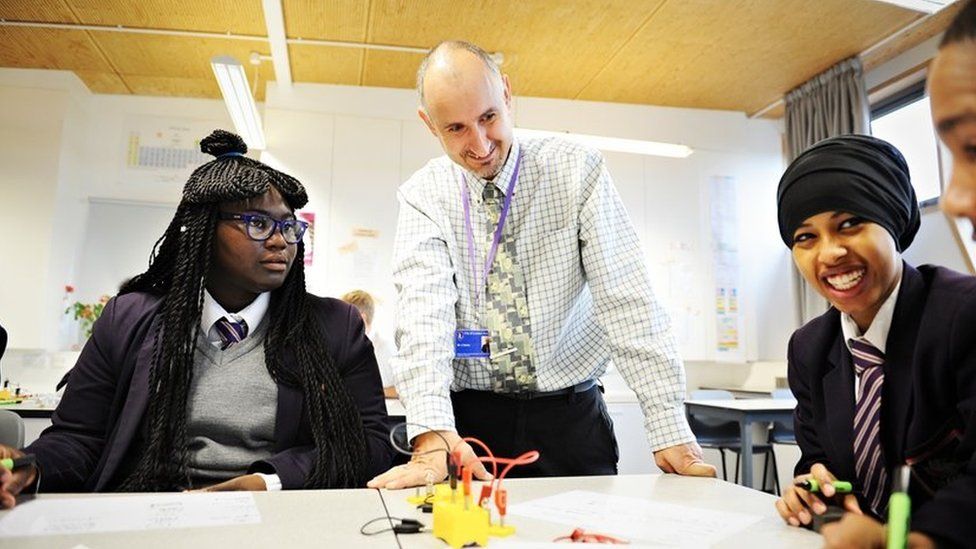Teacher encouragement 'gives pupils long-term boost'
- Published
- comments

Encouragement from teachers is key to keeping pupils engaged with education after the age of 16, suggests a study of more than 4,000 students in England.
Middle-ability students and those whose parents lack qualifications benefit most from positive feedback, according to the Cambridge University research.
The students were tracked for seven years from the age of 13 onwards.
This is the first study of its kind to quantify the effect of encouragement on pupils, says the university.
"When people speak of a positive school experience, they frequently cite a personal relationship with a teacher and the encouragement they were given," said report author Dr Ben Alcott.
"Our research helps quantify that impact and show its significance, particularly for addressing social mobility."
The 4,300 teenagers, who were all in the same school year and from more than 600 schools across England, completed a detailed questionnaire every year between 2003 and 2010.
In Year 11, the last year of compulsory education at the time, they were asked whether a teacher had encouraged them to stay on in full-time education.
The researchers used mathematical modelling to cross-reference pupils' responses with their subsequent life histories, including whether they did A-levels and whether they went to university.
They were also grouped according to other factors such as level of parental education and household income.
"This approach brings us plausibly close to reading the long-term effect of encouragement from teachers," said Dr Alcott.
Among students who said they had received encouragement, 74% continued with their education after 16, compared with 66% among pupils who did not receive encouragement.
For pupils in the middle third for attainment, the effect of encouragement was even more pronounced - 64% of those who received encouragement did A-levels, compared with 52% among those who did not.
And this difference persisted, with 46% of pupils in this group who said they had received encouragement going to university, compared with 36% of those who did not.
For students whose parents lacked formal qualifications, 64% of those who received encouragement, continued with their studies after 16, compared with 52% of those whose teachers had not encouraged them - and at university level there was still a 10 percentage point gap between the two groups.
Dr Alcott, himself a former teacher, said the results suggested that the relationships that teachers developed with students "are real engines for social mobility".
"Many teachers take the initiative to encourage students," he said.
"It's important that teachers know the effect their efforts have and the children likely to benefit most."
The interviews were carried out as part of the Department for Education's Longitudinal Study of Young People in England, and the study is published in the journal Research in Higher Education.